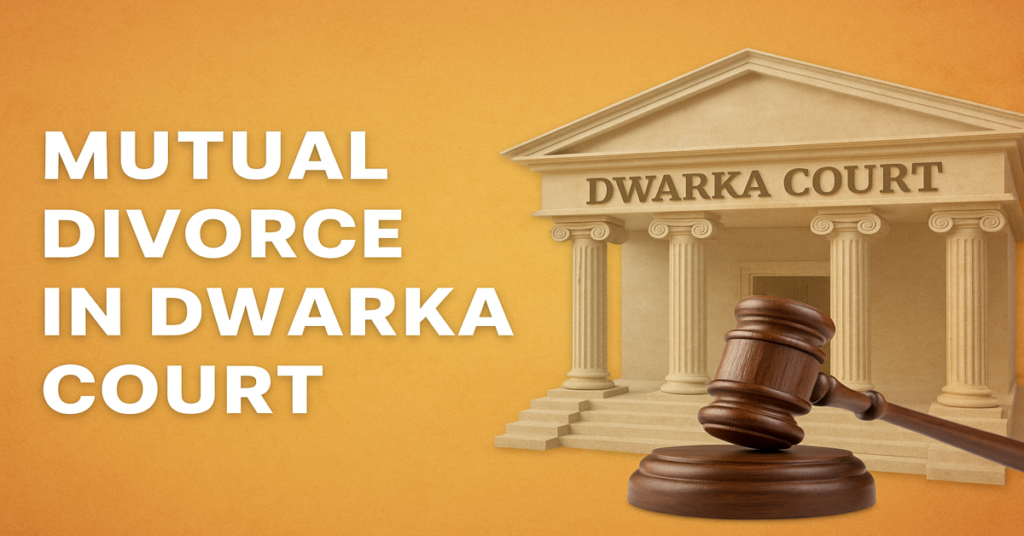When couples decide to separate peacefully and mutually, one of the first questions that comes to mind is
how much time will this take?
Mutual Divorce — also called divorce by mutual consent — is legally designed to be faster, simpler and less
stressful than contested litigation. However, there are certain legal timelines and mandatory waiting periods set
under Indian law. Understanding these timelines clearly helps you plan your future — emotionally, financially and
practically.
🕒 This guide explains the actual time period for mutual divorce in India, factors that affect the duration,
recent legal judgments on waivers, and answers to the most common timeline questions.
Table of Contents
1. How long does it take for mutual divorce?
The time required for a mutual divorce varies depending on two key factors: the duration of separation and the settlement of issues between the spouses. If the couple has been living separately for more than 18 months and has resolved all their matters, the divorce process can be expedited. In such cases, the Hon’ble Judge has the authority to waive off the standard six-month waiting period, allowing the divorce to be finalized within a shorter timeframe.
It’s important to note that the actual duration can vary based on the unique circumstances of each case and the procedures followed by the court handling the matter.
2. Can mutual divorce be done within 6 months? Can it be done within 15 days or 2-3 months?
If the Hon’ble Judge waives off the six-month waiting period, a mutual divorce can be completed within 15 days or even 10 days. However, if the waiver is not granted, the divorce cannot be finalized before the completion of six months. The timeline can also be influenced by the workload of the specific court, which may result in the process taking around 2 to 3 months.
3. Can a divorce be done in one day?
No, it’s not possible to complete a mutual divorce in one day. The process involves two mandatory motions: the First and Second motions, with a minimum gap of 7 days between them. However, there is an exception when the litigation reaches the Hon’ble Supreme Court, and the parties mutually settle for a divorce. In such cases, the Supreme Court may dissolve the marriage in a single day.

4. What is the new rule of mutual divorce?
In a significant judgment dated 01.05.2023, the Hon’ble Supreme Court of India clarified that if a case reaches the Supreme Court and the parties mutually agree to dissolve the marriage, the court has the discretion to grant a decree of divorce by mutual consent without the need for a second motion. However, it’s crucial to note that this ruling applies specifically to cases that have reached the Supreme Court and should not be considered a general rule for all mutual divorce cases. To know more about this judgement, click here.
5. Is 1-year separation mandatory for mutual divorce?
Generally, yes, one-year separation is mandatory for filing a mutual divorce case. However, the court has the discretion to waive off this period in exceptional circumstances. If the court does not consider your case as an exception, you will need to wait for the completion of one year of separation to proceed with the first motion.

6. What does "living separately" mean in this context?
According to the Hon’ble Supreme Court of India’s judgment in ‘Smt. Sureshta Devi vs Om Prakash,’ “living separately” implies not living as husband and wife. The physical location of the parties is not the determining factor. They may live under the same roof due to circumstances while not fulfilling marital obligations.
The essential requirement is that they have no desire to perform marital duties and have been living separately for at least one year preceding the filing of the petition.
7. Can we file a mutual divorce before 1 year?
In general, one year of separation is mandatory for filing a mutual divorce case, indicating that the marriage must be at least one year old.
However, in exceptional cases where significant issues have occurred in the marriage, you can file a mutual divorce case along with an application under Section 14 of the Hindu Marriage Act, requesting the court to allow the mutual divorce before the completion of one year. If the court accepts your application, the mutual divorce case can be filed before one year.

8. Can a mutual divorce be filed immediately after marriage?
As a general rule, a mutual divorce case cannot be filed immediately after marriage. Typically, you must wait for at least one year from the date of marriage to proceed with the first motion. However, exceptions can be made in certain circumstances, as determined by the court.
9. Can I marry after filing a mutual divorce?
No, you cannot remarry after filing a mutual divorce case. You can only enter into a new marriage once the mutual divorce is granted by the court.
10. Can I marry immediately after the mutual divorce is granted?
Yes, you can marry immediately after the mutual divorce is granted. Unlike other divorce cases, mutual divorce does not have a window for appeal, allowing you to embark on a new marital journey without delay.
Conclusion
Understanding the time period involved in a mutual divorce is crucial for couples seeking to dissolve their marriage through mutual consent. While the duration can vary based on several factors, such as the separation period and court procedures, it’s essential to follow the legal requirements and seek guidance from legal professionals for a smooth and timely process.
Ready to Begin a Peaceful Divorce Journey?
If you and your spouse have mutually decided to part ways, FAM Legal is here to help you take the right legal steps — responsibly, respectfully, and with complete confidentiality. Begin The Process by submitting the Mutual Divorce Application




